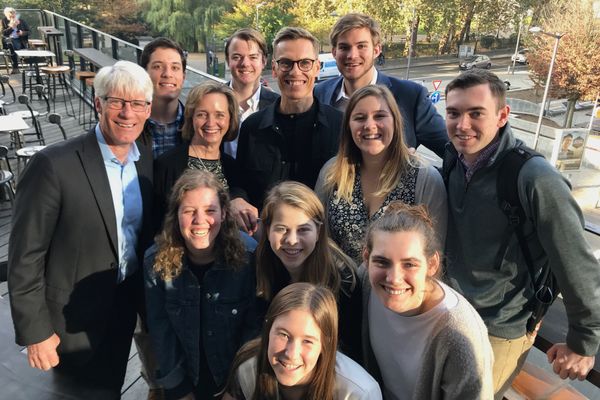The Study Away Committee adopted new guidelines related to risk management, health and safety last month that threaten the continued existence of the Brussels internship program, one of Furman’s oldest and most distinctive faculty-led study away programs.
The new rules, established by a committee composed of both faculty and students, require the on-site “providers” Furman partners with, such as Education Programmes Abroad (EPA) in Brussels and International Education of Students (IES) for European affiliate programs, to own the buildings students are housed in as well as provide 24/7 access to physical and mental healthcare.
Study away director Nancy Georgiev said that a “risk mitigation rubric that meets industry standards” was first adopted during the pandemic and has been “adapted … to be used as criteria for study away programs in the post-COVID era.”
“There are currently no organizations in Brussels that can meet the updated standards and best practices in the field of study away,” Georgiev said. The Study Away office is searching for “another suitable location” in Europe.
Lisa Frauens, EPA’s executive director, declined to comment on this story.
The prospect of the new guidelines permanently ending the Brussels program has prompted criticism from alumni.
Samantha Whitley ’20 credits Furman faculty-led study away programs in Berlin and Brussels with her ability to win a Fulbright grant teaching English in Germany. “If Furman is going to use my Fulbright to their advantage to say, ‘hey, look, we’re a top Fulbright school,’ don’t take away the study away that helped me get my Fulbright,” Whitley said.
Like Whitley, John Bleed ’17 said he would not be where he is today without the Brussels program. “Brussels was the most stimulating, challenging, and rewarding experience of my Furman career,” he said. “It was everything The Furman Advantage seeks to offer in a liberal arts education to students.”
Bleed said moving the Brussels program to another European city would be detrimental to Furman’s reputation abroad and among prospective students domestically.
Furman’s faculty-led study away opportunities in continental Europe make our school distinctive among our peers and put us on par with larger, higher-profile liberal arts universities like Wake Forest. Bleed said that although new guidelines would not end all of Furman’s faculty-led programs, they would nonetheless represent a step in the wrong direction.
“We need to have a presence in the heart of Europe,” he said. “Without Brussels, we literally would only have a presence in English-speaking cities …. other than the language programs.”
In addition to concerns about the potential impact to Furman’s reputation, several alumni also questioned the logic of the Study Away Committee in adopting the new guidelines, describing the regulations as both unrealistic and undesirable, putting unnecessary roadblocks between students and the challenging yet fulfilling experiences they are promised through The Furman Advantage. Study away experiences — and college more broadly — are meant to help students prepare for independent adulthood. These new restrictions would hinder that purpose.
